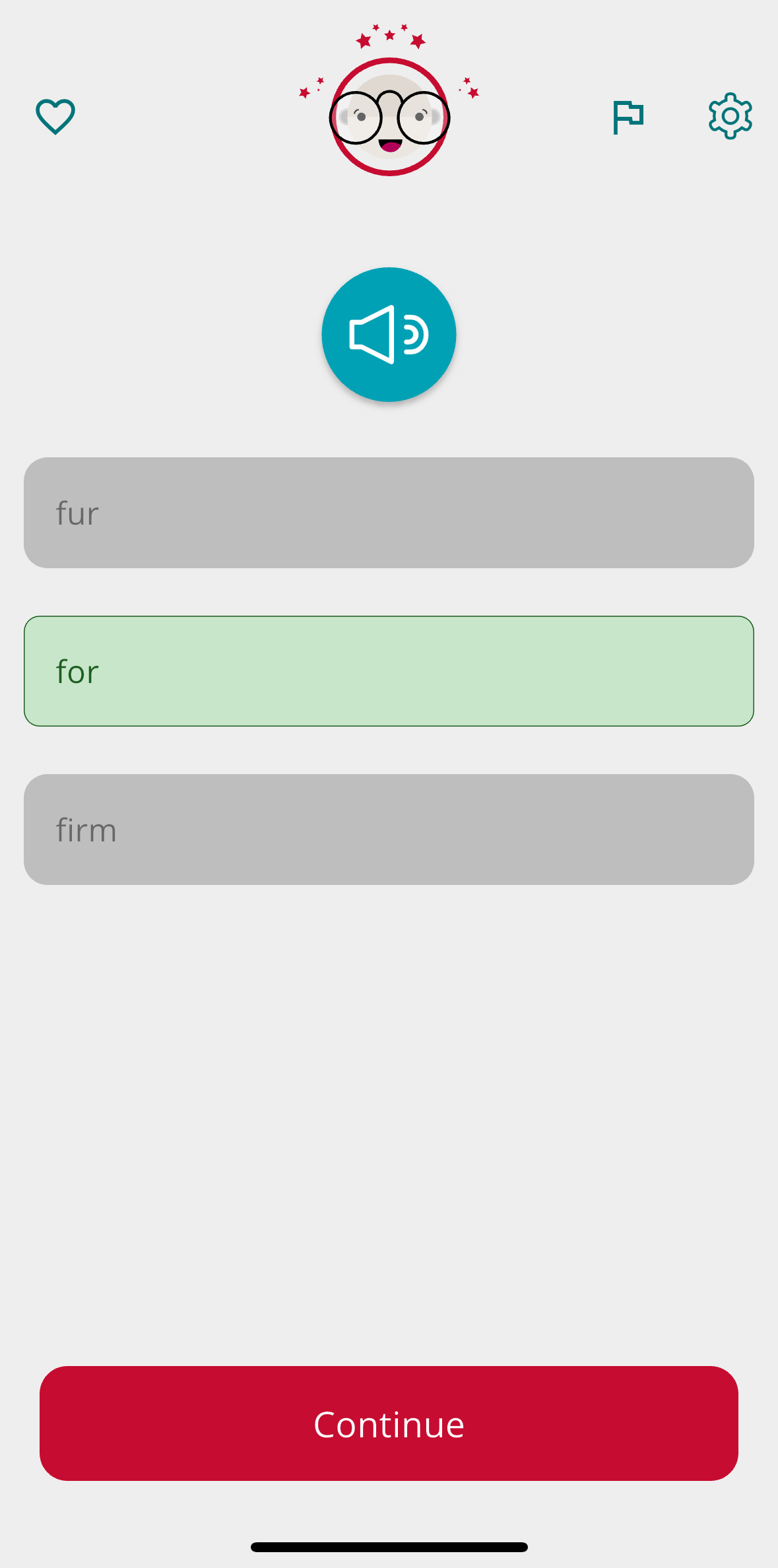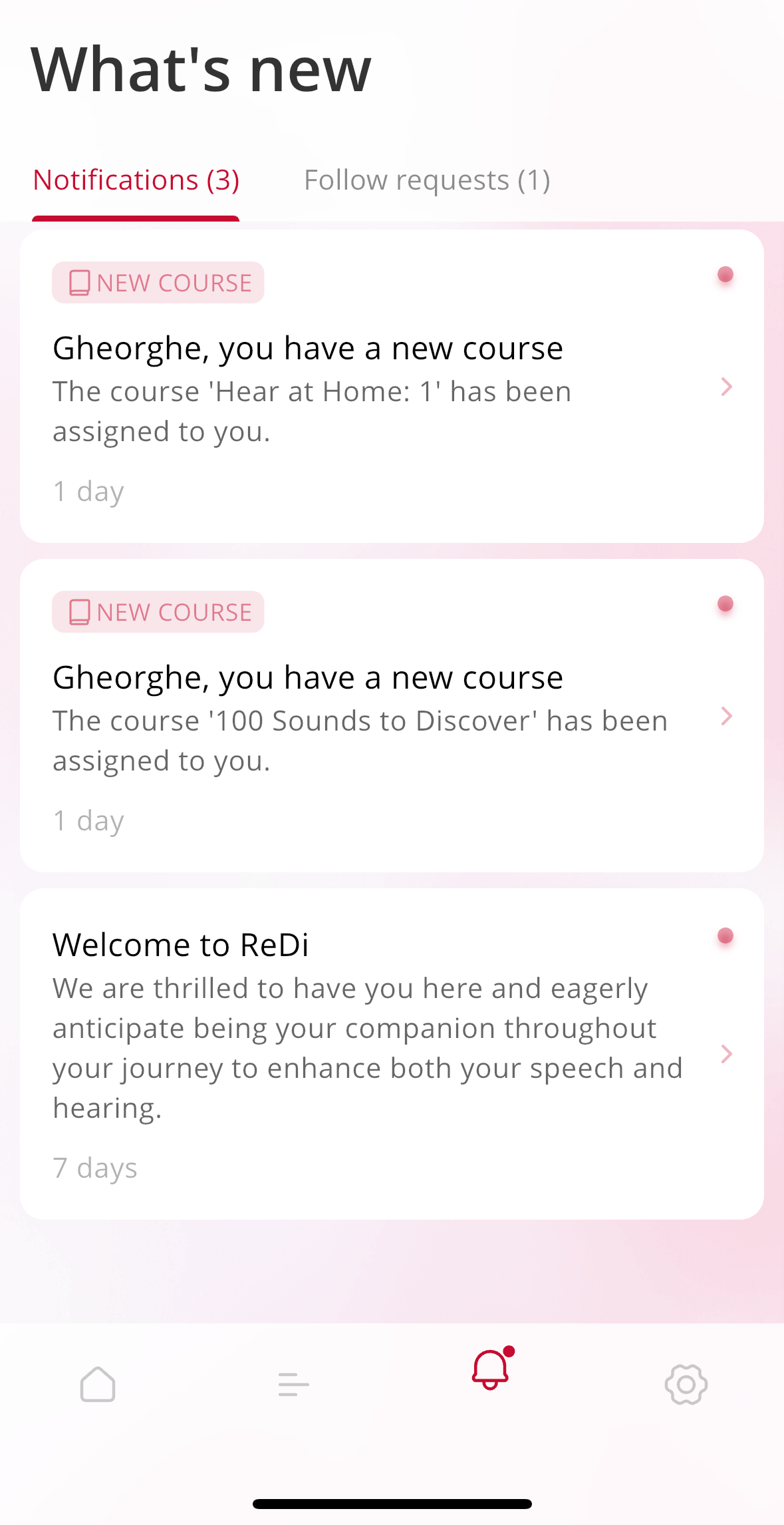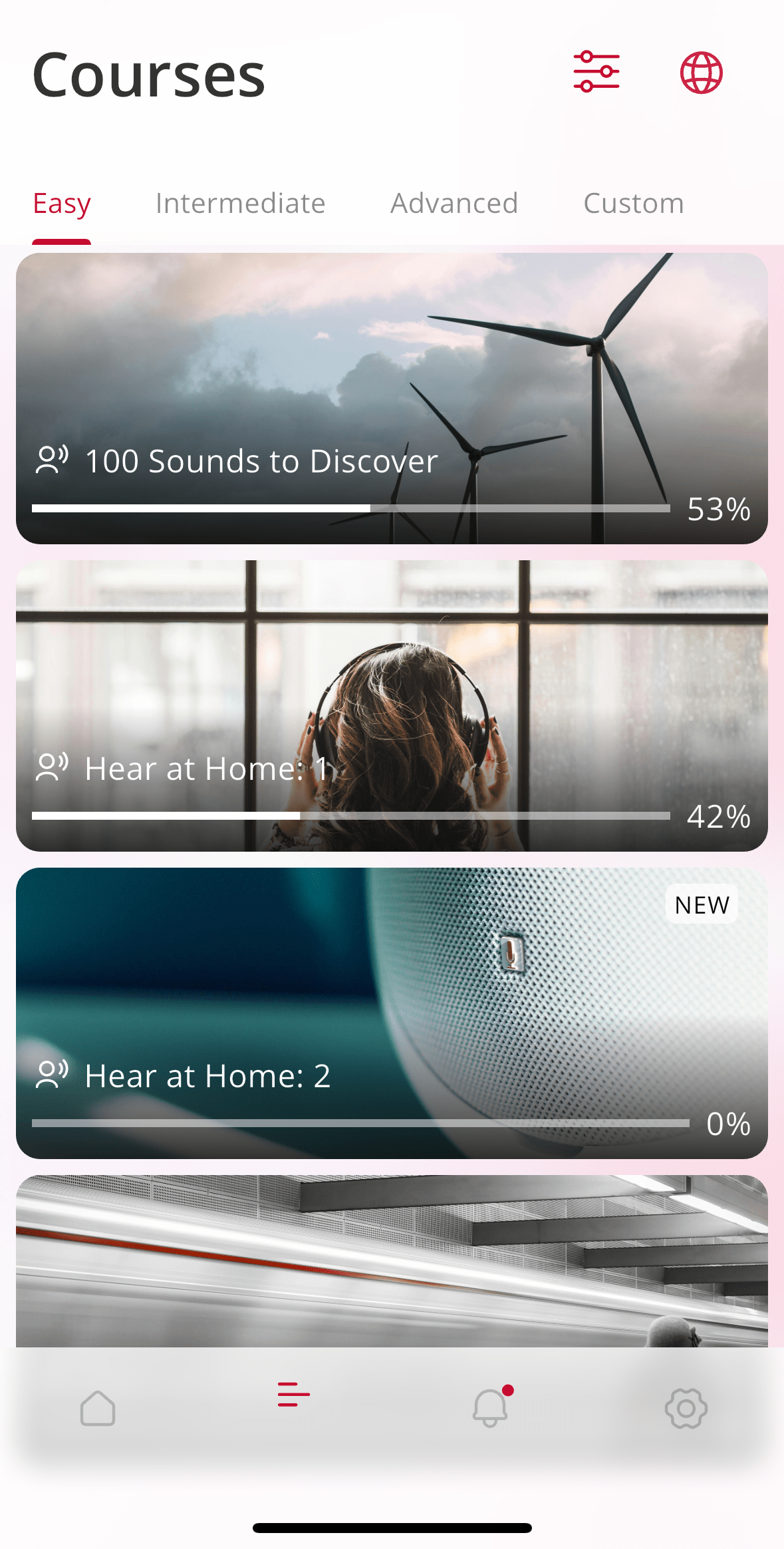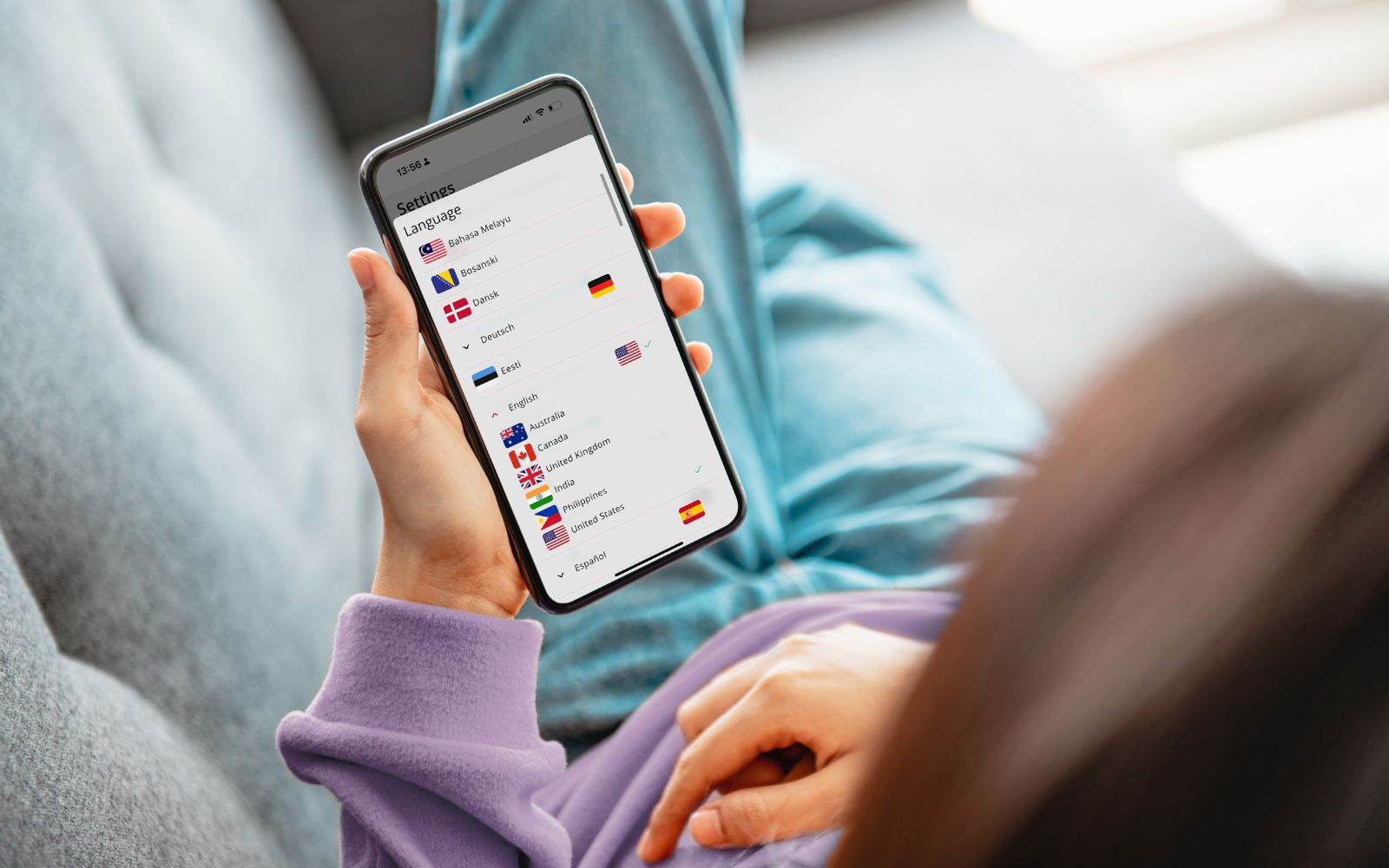
Deepthi Mahadevappa
Published Sep 17, 2024
How AI Is Transforming Auditory Rehabilitation Care With the ReDi App
Users of hearing aids and cochlear implants benefit from auditory rehabilitation training. However, following the activation of hearing devices, several barriers to receiving auditory rehabilitation care exist for many users. To overcome these barriers, MED-EL has developed the ReDi auditory rehabilitation app that uses AI (artificial intelligence) technology. Clinicians can use ReDi to help provide personalized and level-appropriate auditory and speech training to their patients remotely in over 155 languages—and cochlear implant users can benefit from immediate feedback while training whenever and wherever they wish.

Auditory rehabilitation is beneficial for all types and degrees of hearing loss to supplement treatment and enhance quality of life.[1] Among cochlear implant recipients of all ages, auditory rehabilitation is associated with significant improvements in hearing outcomes, comprehension of spoken language, and quality of life.[2]
“Recent meta-analyses and systematic reviews demonstrate that AR [auditory rehabilitation] is safe and effective in both adult and pediatric populations.”
Harvey et al., 2024
In adult cochlear implant recipients, auditory training can improve speech recognition,[3] and in older adults over 65, aural rehabilitation combined with cochlear implantation is associated with improvements in cognitive function.[4] Specifically, auditory training has not only been shown to improve speech perception but also enhance working memory and processing speed in cochlear implant users over 65.[5]
Barriers to Accessing Auditory Rehabilitation Care
Despite the demonstrated benefits of auditory training and rehabilitation combined with hearing loss treatment, barriers continue to exist in receiving auditory training and auditory rehabilitation services after cochlear implant activation, such as lower socioeconomic status or living in a rural area.[6]
“[Our research has demonstrated] a delay in the initiation of speech therapy in rural cochlear implant recipients. For children with cochlear implants from homes with low [socioeconomic status], Medicaid insurance, and low parental education, multiple barriers exist. Addressing access barriers deserves further research in order to maximize speech and language outcomes in CI recipients.”
Noblitt et at., 2018
Medical insurance coverage remains a major factor limiting access to auditory rehabilitation in some countries, such as the United States where Medicare and Medicaid reimbursement rates may fail to cover the costs associated with aural rehabilitation.[7]
In addition, the time needed for rehabilitation appointments can present a barrier for adults with a cochlear implant who require childcare, time off from work, and transportation assistance.[7]
“Costs incurred by clients depended mainly on whether the [auditory training] was home-based or clinician-led (i.e., face-to-face, group-based), program fees, and travel arrangements made by clients, as well as clinicians’ wages and the method chosen to deliver [the auditory training].”
Reis et al., 2019
Research Findings on Computer-Based & At-Home Auditory Training Tools
In adult patients in particular, there is preliminary evidence that both computer-based and in-person auditory rehabilitation strategies can improve speech perception outcomes following cochlear implantation.[8] Additionally, a growing number of recent studies have also concluded that cochlear implant users can benefit from computer-based auditory training completed at home.
One study found that computer-based auditory training completed at home significantly improves listening skills and speech recognition,[9] and another investigated short-term benefits and quality of life in the period immediately following cochlear implant activation.[10]
“Our findings provide preliminary evidence-based recommendations for use of specific auditory training resources for new adult CI recipients. Auditory training, especially self-directed computer software, resulted in improved speech recognition and CIQOL outcomes after 3 months and are widely available for CI users.”
Dornhoffer et al., 2022
Thus, preliminary research findings indicate that computer-based auditory training may be effective for adult users of cochlear implants following activation.
Introducing the ReDi Auditory Rehabilitation App: An AI Tool to Increase Access to Care



“Rather than simply automating tasks, AI is about developing technologies that can enhance patient care across healthcare settings. However, challenges related to data privacy, bias, and the need for human expertise must be addressed for the responsible and effective implementation of AI in healthcare.”
Alowais et al., 2023
ReDi is an innovative AI-powered tool designed to assist rehabilitation professionals in developing and enhancing personalized auditory rehabilitation therapy for patients and clients. As a comprehensive platform and an auditory rehabilitation app that empowers both therapists and recipients, ReDi makes independent auditory training and remote rehabilitation care more accessible than ever before.
The ReDi app aligns with research findings, enabling users to start training immediately after device activation, practice anywhere, and train their speech and auditory recognition at a pace they are comfortable with.
How ReDi Works for Hearing Professionals & Cochlear Implant Recipients
ReDi is comprised of two main components: the ReDi App that cochlear implant recipients can use on their smartphones and the ReDi Studio for hearing professionals, such as speech-language pathologists.
The ReDi App for Cochlear Implant Recipients
Cochlear implant users can download the ReDi app, sign in with their free myMED-EL account, and get started with ready-made courses. The app’s intuitive design ensures training can begin immediately and independently.
The ReDi Studio for Hearing Professionals
Professionals who provide auditory rehabilitation and care can access the ReDi Studio to create and assign new activities, connect with patients, and track their progress. This remote capability allows them to offer personalized care without being physically present in the same location as their patient or client.
The Benefits of Using the ReDi Auditory Rehabilitation App

"I received my cochlear implant ten months ago. I have been in auditory rehabilitation with my speech therapist, Ana Falistocco, and among the tools we have used is the ReDi app. ... It allows me to go back and repeat activities—whether or not I did them well the first time—and if not, even more reason to repeat the exercise. This has contributed a lot to my rehabilitation phase with my implanted ear, as I spent many years without being able to hear. There is a clear ‘before and after’ that I hadn’t noticed until now as I’m going through it."
María del Carmen Ramallo
63-year-old unilateral CI & SONNET 2 user from Argentina
Hearing professionals can benefit by using ReDi to provide:
- Remote Care: Provide rehabilitation support from anywhere to patients and clients.
- Customization: Create personalized exercises tailored to meet each patient’s unique needs. ReDi supports over 155 languages, allowing professionals to create activities in the preferred language. The voice, speech rate, pitch, and SNR (speech-to-noise ratio) for the activities can be adapted to vary difficulty level for each patient.
- Monitoring: Track progress and adjust training in real time.
Adult cochlear implant recipients can benefit from gaining:
- Independence: Recipients can train at their own pace without needing a facilitator.
- Variety: ReDi users can access diverse exercises that cater to different skill levels and provide immediate feedback. And they can practice their auditory and speech skills independently.
- Convenience: ReDi is an easy-to-use app that can fit seamlessly into their daily routines.
How to Begin Providing Auditory Rehabilitation Care with ReDi Studio
- Download the ReDi app and register to log in.
- Contact your local MED-EL representative to request access to ReDi Studio.
- Once granted access, log in to ReDi Studio at https://studio.redi.medel.ai/ using the same credentials from the ReDi app.
- Connect with your patients, create personalized activities, and monitor their progress remotely.
With ReDi Studio, you can transform your rehabilitation approach. By delivering personalized, effective care remotely, you can equip your patients with the essential tools for success.
Professionals and clinicians can check out our course to learn how to provide auditory and speech therapy training with ReDi Studio on the MED-EL Academy.
Everyone Can Download the ReDi App for Auditory Rehabilitation & Training
As with all of our rehabilitation apps, the links to download the ReDi app can be found here on our medel.com apps download page.
For more about how ReDi works and other digital tools for auditory rehabilitation, you can also check out our podcast: Reach the Peak: Accessible and Individualized Rehabilitation for Better Outcomes.
More information on the ReDi auditory rehabilitation app for hearing device users can be found in our article: Meet ReDi: The New Listening Training Partner for Cochlear Implant Users.
References
[1] Brodie, A., Smith, B., & Ray, J. (2018). The impact of rehabilitation on quality of life after hearing loss: a systematic review. European Archives of Oto-Rhino-Laryngology, 275, 2435-2440.
[2] Dazert, S., Thomas, J. P., Loth, A., Zahnert, T., & Stöver, T. (2020). Cochlear implantation: Diagnosis, indications, and auditory rehabilitation results. Deutsches Ärzteblatt International, 117(41), 690.
[3] Dornhoffer, J.R., Chidarala, S., Patel,T., Khandalavala, K.R., Nguyen, S.A., Schvartz-Leyzac, K.C., Dubno, J.R., Carlson, M.L., Moberly, A.C., McRackan, T.R. (2024). Systematic Review of Auditory Training Outcomes in Adult Cochlear Implant Recipients and Meta-Analysis of Outcomes. Journal of Clinical Medicine, 13(2), 400. https://doi:10.3390/jcm13020400
[4] Issing, C., Baumann, U., Pantel, J., & Stöver, T. (2021). Impact of hearing rehabilitation using cochlear implants on cognitive function in older patients. Otology & Neurotology, 42(8), 1136-1141.
[5] Häußler, S. M., Stankow, E., Knopke, S., Szczepek, A. J., & Olze, H. (2023). Sustained cognitive improvement in patients over 65 two years after cochlear implantation. Brain Sciences, 13(12), 1673. https://doi.org/10.3390/brainsci13121673
[6] Noblitt, B., Alfonso, K. P., Adkins, M., & Bush, M. L. (2018). Barriers to rehabilitation care in pediatric cochlear implant recipients. Otology & Neurotology, 39(5), e307-e313.
[7] Nassiri, A. M., Marinelli, J. P., Sorkin, D. L., & Carlson, M. L. (2021). Barriers to adult cochlear implant care in the United States: an analysis of health care delivery. In Seminars in Hearing, 42(4), 311-320.
[8] Harvey, E., Melin, S., Doerfer, K., Moberly, A. C., & Harris, M. S. (2024). Auditory rehabilitation following cochlear implantation. Current Otorhinolaryngology Reports. https://doi.org/10.1007/s40136-024-00510-8
[9] Völter, C., Stöckmann, C., Schirmer, C. & Dazert, S. Tablet-Based Telerehabilitation Versus Conventional Face-to-Face Rehabilitation After Cochlear Implantation: Prospective Intervention Pilot Study. JMIR Rehabilitation Assist. Technol. 8, e20405 (2021).
[10] Dornhoffer, J. R., Reddy, P., Ma, C., Schvartz-Leyzac, K. C., Dubno, J. R., & McRackan, T. R. (2022). Use of auditory training and its influence on early cochlear implant outcomes in adults. Otology & Neurotology, 43(2). https://doi.org/10.1097/mao.0000000000003417
[11] Reis, M., Boisvert, I., Beedell, E., & Mumford, V. (2019). Auditory training for adult cochlear implant users: A survey and Cost Analysis Study. Ear & Hearing, 40(6), 1445–1456.
[12] Alowais, S. A., Alghamdi, S. S., Alsuhebany, N., Alqahtani, T., Alshaya, A. I., Almohareb, S. N., Aldairem, A., Alrashed, M., Saleh, K. B., Badreldin, H. A., Yami, M. S. A., Harbi, S. A. & Albekairy, A. M. (2023). Revolutionizing healthcare: the role of artificial intelligence in clinical practice. BMC Medical Education, 23(1), 689. https://doi.org/10.1186/s12909-023-04698-z
References

Deepthi Mahadevappa
Deepthi Mahadevappa (Ph.D.) is a speech language pathologist currently working as a rehabilitation manager at MED-EL headquarters in Innsbruck, Austria. Dr. Mahadevappa has many years of experience working in the field of hearing loss in clinical and educational settings. At present, she contributes to the development of digital rehabilitation tools and supports rehabilitation professionals globally.
Was this article helpful?
Thanks for your feedback.
Sign up for newsletter below for more.
Thanks for your feedback.
Please leave your message below.
CTA Form Success Message
Send us a message
Field is required
John Doe
Field is required
name@mail.com
Field is required
What do you think?
The content on this website is for general informational purposes only and should not be taken as medical advice. Please contact your doctor or hearing specialist to learn what type of hearing solution is suitable for your specific needs. Not all products, features, or indications shown are approved in all countries.

Deepthi Mahadevappa
Deepthi Mahadevappa (Ph.D.) is a speech language pathologist currently working as a rehabilitation manager at MED-EL headquarters in Innsbruck, Austria. Dr. Mahadevappa has many years of experience working in the field of hearing loss in clinical and educational settings. At present, she contributes to the development of digital rehabilitation tools and supports rehabilitation professionals globally.

Deepthi Mahadevappa
Deepthi Mahadevappa (Ph.D.) is a speech language pathologist currently working as a rehabilitation manager at MED-EL headquarters in Innsbruck, Austria. Dr. Mahadevappa has many years of experience working in the field of hearing loss in clinical and educational settings. At present, she contributes to the development of digital rehabilitation tools and supports rehabilitation professionals globally.

.png)


